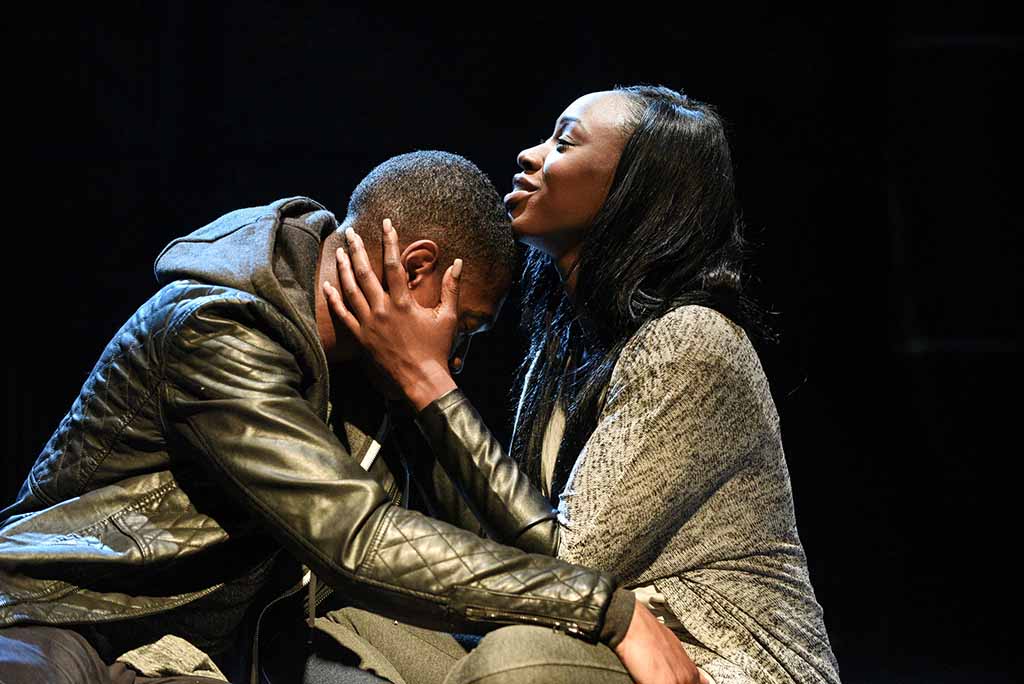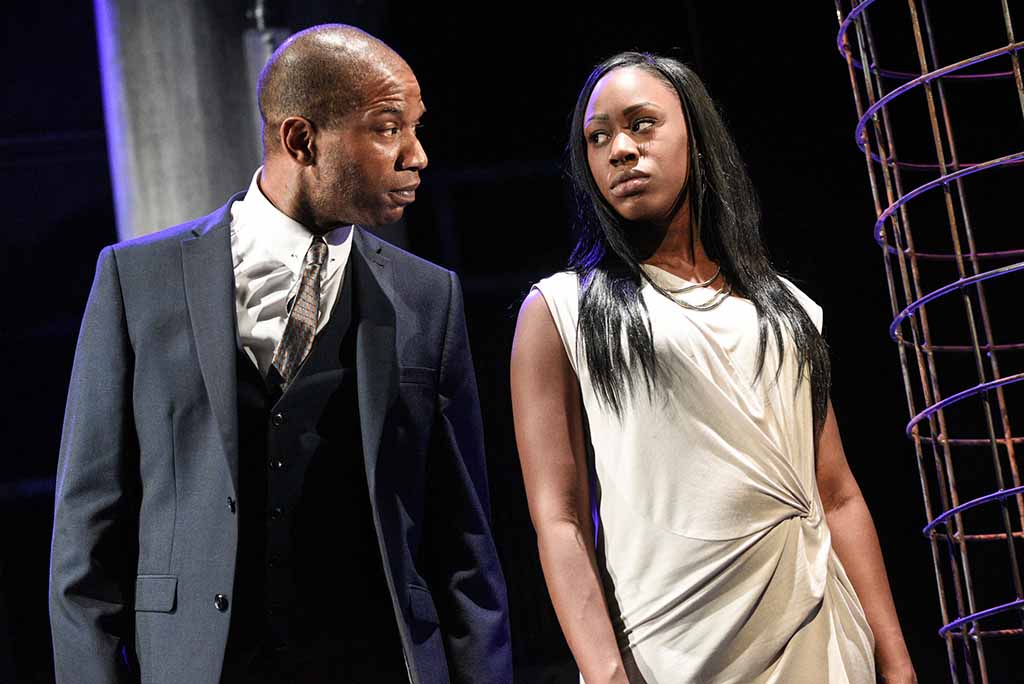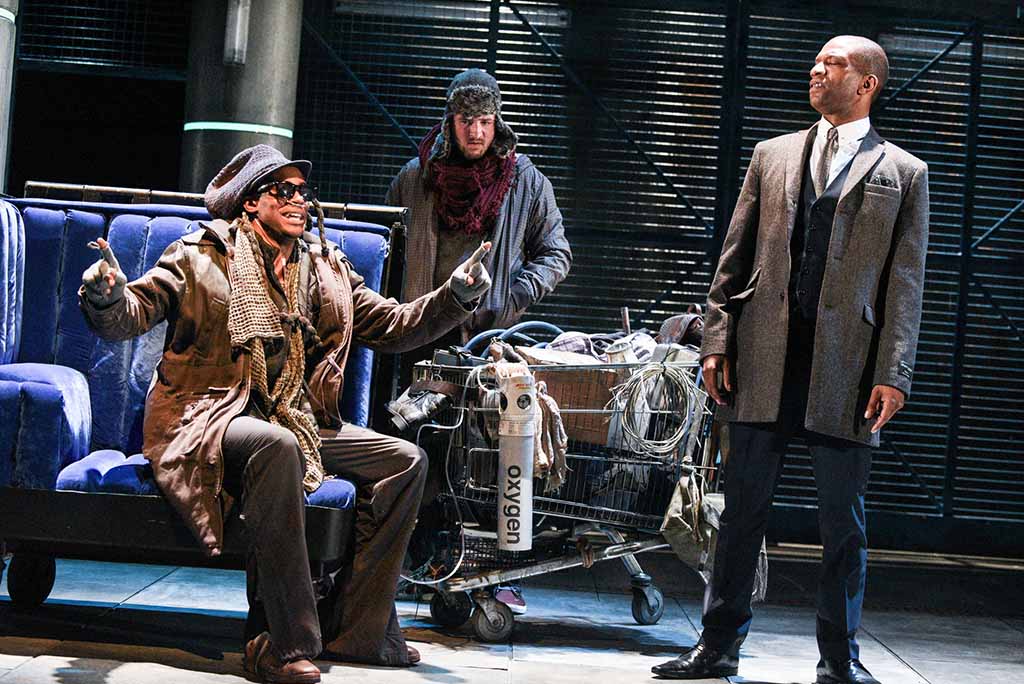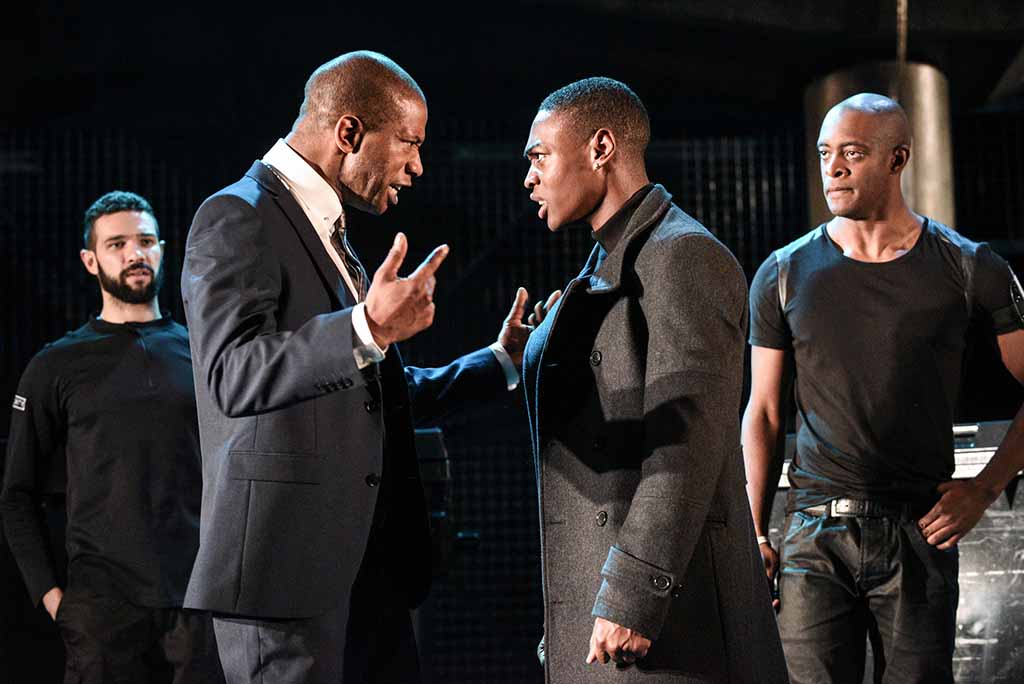An ancient Greek text finds an updated voice in Roy Williams’ and Pilot Theatre’s adaptation of Antigone, and it is one that no doubt speaks loudly to many young people. Set in the murky underworld of a nightclub in Thebes, with a distinctly London sound, we watch as the age old complexities of family rivalry and corrupt leadership ultimately ruin the lives of the principal characters. Tig, Williams’ renaming of the title role, as with Sophocles’ Antigone, has the dilemma of whether to disobey her uncle Creo and bury her rebel brother who died fighting against him, or betray herself by leaving Orrin’s corpse to rot uncovered. The fatal consequences of standing up to Creo, with his foot soldiers and criminal dealings, bear striking resemblance to the gang culture Williams openly criticizes.
The production in general has a tightly youthful energy, issuing primarily from Creo and his soldiers and the slick choreography that transitions us between locations. The imbedded digital elements, such as the projected CCTV footage, alongside the concrete coloured trompe l’oeil, fix us in an eerie, yet familiar, present. Necessarily Tig and Eamon are played with emotional weight and this nicely reflects the respective burdens of family loyalty that they bear. Gamba Cole skillfully demonstrates Eamon’s growing maturity from hen-pecked mamma’s boy to ‘the man’ his father eventually recognizes him as. This is in beautiful contrast to Sean Sagar’s goonishly arrogant sentry and the determined autocrat that Mark Monero embodies, sadly all too frequently visible in those with power. Oliver Wilson proves himself to be an outstanding performer, transforming himself from one of Creo’s heavies to the withered, skunk-smoking seer Tyrese. As Soldier 1, his increasing sympathy towards Tig and away from Creo’s world, represented by not wearing the soldier’s uniform in the final scene, could be seen as a hopeful signal to those in similar situations wishing to re-find their humanity.
Special mention must be made to Savannah Gordon-Liburd as Antigone, for the grief and strong presence she maintains throughout the show, although a little more variation in her delivery would be welcome. The scene after she has run away with Eamon showed a gentler side to the character and a vulnerability which was truly moving. Monero as head honcho Creo seems to have the lion’s share of the text and delivers it at a fantastic pace, with studied charm and clarity. Looking around the mainly grey heads of the Canterbury audience, I wonder how much of the language, a mix of contemporary slang, patois and almost classical text, lands with them. There is a physical expressivity, however, that leaves us in no doubt of what is being said.
As both Marcus Romer and Williams have identified, the themes of Antigone are timeless and Sophocles’ narrative works exceedingly well as a template for a contemporary version. What works less well, I feel, is the specific references to the ancient Greek context of the original story which seem to jar here. The significance of Thebes or the mythological heroes that Tig compares Eamon to or the pantheon of gods who are called upon or rallied against seem oddly imposed within this context. Nonetheless, these are minor distractions and on the whole the result is an impressive reworking of a classic, managing to illustrate Antigone’s continued relevance to both young and old.





